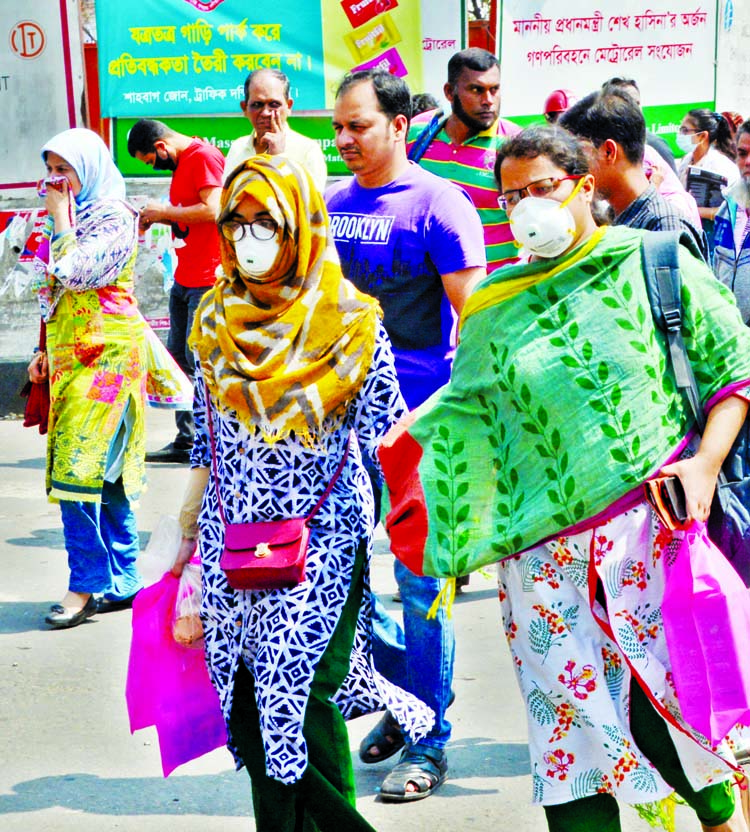
Staff Reporter :
The High Court on Monday observed that despite the government have admirable efforts in tackling the transmission of coronavirus in the country, there is a serious lacking in preparedness to restrain its spreading.
“The government’s initiatives are admirable but not enough. We are lagging behind the preparations that the government has taken. But there is nothing to be panicked. Preventive measures have to be taken before it becomes wider. There is no chance to neglect the matter,” the court said.
The HC bench of Justice FRM Nazmul Ahasan and Justice KM Kamrul Kader came up with the observations while holding hearing on a government report about its preparation to prevent an outbreak of coronavirus in the country.
Dr Md Aminul Hassan, Director (Hospitals and Clinics) of the Directorate General of Health Services (DGHS), sent the report complying with the High Court’s earlier order. Deputy attorney general ABM Abdullah Al Mahmud Bashar submitted the report in the court.
The court expressed dissatisfaction as two of the three digital thermal scanners at Hazrat Shahjalal International Airport are out of order. It also directed the government to take measures to set up adequate thermal scanners at all air, land and sea ports.
During the hearing, the High Court asked the government to take necessary steps to stop price hike of masks, hand wash and sanitizers and to reserve them illegally. Besides, the court said the government can operate mobile courts to prevent an artificial crisis or price hike of these items if necessary.
The court also ordered the government to create awareness among people about coronavirus through advertisements. It asked authorities to issue clearance certificates for people coming from abroad to Bangladesh to ensure that they are not infected with coronavirus.
After reading the government report, the second judge of the HC bench KM Kamrul Kader said, “We saw in the media that people are giving lines to the shops for buying masks. It is very sad that if you buy a mask at a cost of Tk 80 to 100.”
Presiding judge of the bench FRM Nazmul Ahasan said, “An awareness has been built up among the people. It is important to be careful whether there is any kind of business in the market in this chance like onions. The government can operate mobile courts to prevent an artificial crisis or price hike of these items if necessary.”
Pointing to the press briefing of Institute of Epidemiology, Disease Control and Research (IEDCR), the court said, “A responsible person of IEDCR briefs about coronavirus regularly. Her speech should be more positively so that it could not cause panic in people in any way.”
After holding hearing on the government report the court fixed April 5 for further hearing on the matter.
Earlier on March 5, the same High Court bench wanted to know on the steps taken by the government to prevent a potential outbreak of coronavirus in the country.
Health secretary and director general of the directorate of general of health services (DGHS) had been asked to submit a report in the court in this regard by March 9.
The court wanted to know from the respondents if the government had provided adequate equipment to all the air, land and sea ports in the country to test the people who were entering the country from abroad to prevent a coronavirus outbreak. If the persons were competent to test the people and if the machineries were fit for test, the court also wanted to know.
The court ordered the government to preserve cabins in the government hospitals for the coronavirus affected patients and to take initiatives so that the private hospital authorities also preserve the cabins for the same reason.
The court ordered the government to import machineries to identify the coronavirus affected people on an emergency basis if these are not available in the country.

